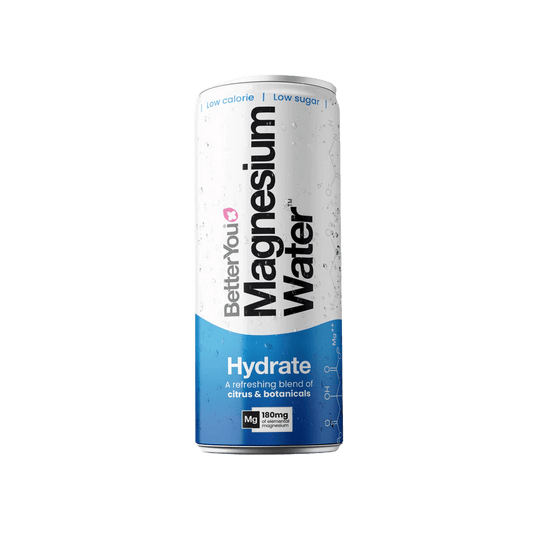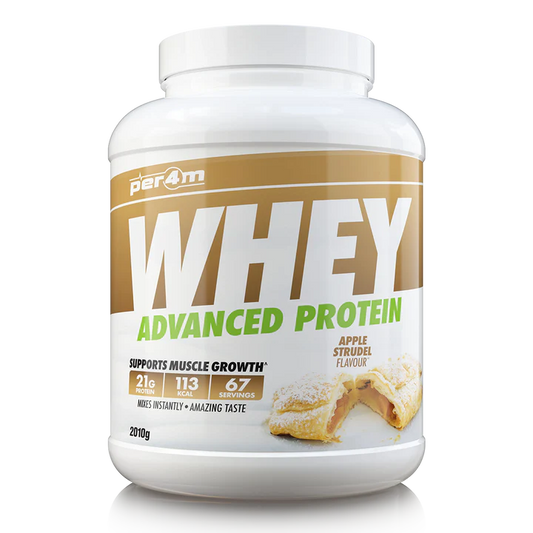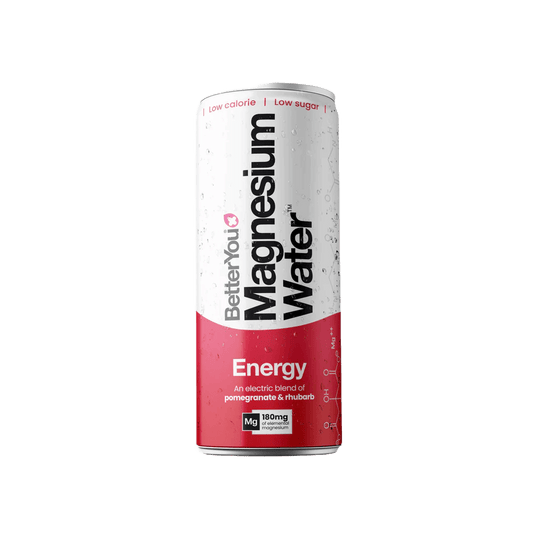Introduction: Why Low Blood Pressure Deserves More Attention
When most people think about blood pressure, their minds jump to hypertension — the silent killer that affects millions worldwide. High blood pressure has long been the headline-grabber in health discussions, mainly because of its strong link to heart attacks, strokes, and long-term cardiovascular disease. But what about its opposite: hypotension, or low blood pressure?
For many, it’s brushed off as a “good problem to have.” After all, isn’t it better to be on the lower side than dealing with dangerously high readings? In reality, chronic low blood pressure can be just as disruptive, particularly for people who struggle with fatigue, dizziness, lightheadedness, or brain fog. In some cases, it can even lead to fainting spells or reduced exercise performance.
What’s often overlooked is how much lifestyle, diet, and supplementation play a role in managing low blood pressure. While medications are sometimes needed, the right nutritional strategies can make a tangible difference in stabilising circulation, boosting energy, and preventing symptoms from derailing your day.
This blog will break down, in depth, which supplements are most effective for raising low blood pressure or preventing drops in circulation. We’ll separate quick fixes from long-term solutions, and explain which vitamins and minerals are worth paying attention to.
By the end, you’ll have a clear roadmap for supporting your blood pressure with evidence-backed supplements — and practical tips you can apply immediately.
What Supplements to Take for Low Blood Pressure?
The first question people ask when dealing with hypotension is simple: what should I actually be taking? Unlike hypertension, which often requires reducing intake of sodium and stimulants, low blood pressure support focuses on hydration, electrolytes, and nutrients that strengthen blood volume and circulation.
Here are some of the most important supplements to consider:
1. Electrolytes
Low blood pressure is often tied to dehydration. When you sweat heavily, skip meals, or simply don’t drink enough water, your body struggles to maintain plasma volume. Electrolytes like sodium, potassium, and magnesium are crucial here.
-
Sodium helps pull water into the bloodstream, maintaining fluid balance.
-
Potassium works in tandem with sodium to regulate nerve signals and muscle contractions.
-
Magnesium relaxes blood vessels but also helps balance the effect of sodium.
💡 Pro Tip: Instead of relying solely on plain water, try a hydration product like Ten Percent Club Electrolyte Drink Mix. It replenishes sodium and potassium, helping keep blood pressure stable during workouts or long workdays.
2. Vitamin B12
A B12 deficiency is one of the leading nutrient-related causes of low blood pressure. Without enough B12, your body struggles to make healthy red blood cells, leading to pernicious anaemia. This condition lowers blood volume and oxygen delivery, both of which drop your pressure further.
Supplements like Applied Nutrition Multi-Vitamin Complex or standalone B12 can be effective ways to maintain healthy levels, particularly for vegans and vegetarians.
3. Iron
Iron isn’t technically a “blood pressure” supplement, but it’s directly tied to circulation. Low iron = low haemoglobin = reduced oxygen delivery. This makes hypotension symptoms like fatigue and dizziness worse. Pairing iron-rich foods with a multivitamin that includes vitamin C can enhance absorption.
4. Adaptogens (e.g., Ashwagandha)
Herbal adaptogens are increasingly researched for cardiovascular benefits. Supplement Needs Ashwagandha is particularly useful because it helps regulate stress hormones, which influence vascular tone. For some, this can reduce extreme dips in blood pressure during stressful or fasted states.
5. Creatine
You might not immediately link creatine with blood pressure, but for those who experience fatigue and weakness alongside hypotension, it’s an excellent support. Products like Naughty Boy Prime Creatine improve cellular energy (ATP production), helping reduce the “low-energy crashes” that often accompany dips in circulation.

What’s the Quickest Way to Raise Low Blood Pressure?
When symptoms hit, you don’t want to wait days for supplements to kick in. You want immediate relief. The good news: there are strategies that can help raise blood pressure quickly, many of which can be enhanced with supplementation.
1. Hydrate With Electrolytes, Not Just Water
Plain water is fine, but when your blood pressure is crashing, it’s not the fastest solution. Adding sodium and potassium speeds up absorption and helps the body hold onto fluid.
💡 Pro Tip: Keep a sachet of Ten Percent Club Electrolyte Drink Mix in your gym bag or desk drawer. Mixing one into your water can give you a rapid boost in hydration and blood volume.
2. Eat Something Salty
Salted nuts, pretzels, or even a small pinch of salt under the tongue can bring pressure back up quickly. For those who train hard, pairing salty foods with BetterYou Magnesium Water helps replace minerals lost through sweat.
3. Compression + Posture Hacks
It’s not a supplement, but worth noting: crossing your legs, lying down with legs elevated, or using compression socks can bring quick relief. Supplements like ashwagandha can then be layered in for more stable long-term support.
What Supplements Can Help Raise Blood Pressure?
Some supplements aren’t about the quick fix — they’re about building a foundation that prevents dips from happening in the first place.
1. Multivitamins
Many cases of low blood pressure tie back to deficiencies. A broad-spectrum product like Applied Nutrition Multi-Vitamin Complex ensures you’re not missing essentials like B vitamins, vitamin C, and trace minerals.
2. Omega 3
This one may surprise you. Omega 3 is usually associated with lowering blood pressure, but in the context of hypotension, it helps improve circulation and vascular elasticity, which can stabilise extreme fluctuations. Supplement Needs Omega 3 is an excellent option here.
3. Collagen Peptides
Applied Nutrition Collagen Peptides can indirectly support blood pressure by strengthening connective tissue, including blood vessels. Weak vascular walls can contribute to poor circulation.
4. Creatine + Protein
Combining Naughty Boy Prime Creatine with a protein source like Per4m Advanced Whey supports muscle recovery and energy. Since low blood pressure often makes training harder, maintaining performance through these staples prevents further fatigue.
💡 Pro Tip: Stack creatine with electrolytes for a more noticeable effect during workouts. The extra hydration supports muscle pumps and vascular stability.

What Is the Fastest Way to Raise BP?
When you feel dizzy or faint, there are quick interventions you can combine with supplements for immediate relief:
-
Sip electrolytes: Rapid hydration = better blood volume.
-
Salt boost: Don’t fear salt when dealing with low blood pressure.
-
Lie down with legs elevated: Increases blood return to the heart.
-
Take a multivitamin consistently: Prevention beats cure.
💡 Pro Tip: Pair BetterYou Magnesium Water with a salty snack if dizziness strikes. The sodium + magnesium combo replenishes what’s lost through sweat and can help restore balance faster than water alone.

Which Vitamins Increase Low Blood Pressure?
Certain vitamins stand out as essential in preventing or correcting hypotension.
1. Vitamin B12
As mentioned earlier, B12 deficiency is a leading culprit. Supplementation can rapidly improve energy, oxygen delivery, and stabilise blood pressure.
2. Vitamin D
Often called the “sunshine vitamin,” vitamin D plays a role in vascular health. While low levels are more commonly linked to hypertension, they can also contribute to poor vascular tone in hypotension. Since the UK has limited sun exposure, supplementation is key.
3. Vitamin C
Vitamin C supports iron absorption and collagen production, both vital for strong blood vessels and healthy circulation.
✅ Recap of Part 1
So far, we’ve answered:
-
What supplements are best for low blood pressure.
-
The quickest ways to raise it when symptoms strike.
-
Which long-term supplements make a difference.
-
The role of vitamins like B12 and D in circulation.
-
Hacks to raise blood pressure fast (hydration, salt, posture).
Products highlighted in Part 1:
- Ten Percent Club Electrolyte Drink Mix
- BetterYou Magnesium Water
- Applied Nutrition Multi-Vitamin Complex
-
Supplement Needs Ashwagandha
- Naughty Boy Prime Creatine
🔜 Part 2 will dig deeper into:
-
The role of foods in blood pressure support.
-
Vitamin deficiencies that cause hypotension.
-
Whether magnesium can worsen low blood pressure.
-
How vitamin D and B12 fit into the picture.
-
Natural remedies and supplement stacks for everyday stability.
Which Supplements Help Raise Low Blood Pressure? (Part 2)
What Foods Are Good for Low Blood Pressure?
Supplements are powerful, but they work best when paired with the right foods. If you’re prone to hypotension, building meals that support circulation and steady energy can help reduce dips throughout the day.
1. Salt-Rich Foods
Unlike hypertension, where salt intake is often restricted, those with low blood pressure may benefit from slightly higher sodium intake. Foods like salted nuts, olives, or cottage cheese can support blood volume.
💡 Pro Tip: If you train hard and sweat a lot, combine a salty snack with Ten Percent Club Electrolyte Drink Mix. This stack ensures you’re replacing both fluid and electrolytes quickly.
2. Iron-Rich Foods
Lean red meat, spinach, and lentils can help prevent iron-deficiency anaemia — one of the most common causes of low blood pressure. For added support, pair with Applied Nutrition Multi-Vitamin Complex for vitamin C, which enhances iron absorption.
3. Protein-Dense Snacks
Low appetite often makes eating enough harder. Easy-to-digest proteins like Per4m Advanced Whey or Combat Fuel Clear Whey are excellent for keeping blood sugar stable, which helps prevent sudden drops in pressure.
4. Hydration Foods
Fruits like watermelon, oranges, and cucumbers not only provide water but also potassium and electrolytes to support hydration balance.

Which Vitamin Deficiency Causes Low Blood Pressure?
Low blood pressure can sometimes be traced directly back to nutrient deficiencies. Let’s look at the most common culprits.
1. Vitamin B12 Deficiency
When you don’t get enough B12, your red blood cell production slows down. This leads to anaemia and less oxygen delivery to tissues, which reduces blood pressure and energy.
Symptoms include:
-
Dizziness
-
Fatigue
-
Shortness of breath
-
Brain fog
A multivitamin or standalone B12 can correct this, and it’s especially important for vegans. Applied Nutrition Multi-Vitamin Complex provides daily coverage to help prevent these dips.
2. Iron Deficiency (Anaemia)
Technically not a vitamin, but worth repeating here: without iron, haemoglobin can’t carry oxygen efficiently. This is one of the fastest ways to develop hypotension.
3. Vitamin D Deficiency
Low vitamin D weakens bones and reduces vascular tone, which can make blood pressure harder to regulate. Since the UK has limited sunlight in winter, supplements are often essential.
4. Folate (Vitamin B9)
Low folate can impair red blood cell production much like B12, contributing to low blood pressure.
💡 Pro Tip: Combining B12 and folate in a multivitamin ensures you’re covering both bases.
Can Magnesium Cause Low Blood Pressure?
This is one of the trickiest questions because magnesium has a dual effect:
-
For people with high blood pressure, magnesium supplementation helps relax blood vessels and reduce pressure.
-
For people with low blood pressure, too much magnesium can sometimes make symptoms worse by relaxing blood vessels excessively.
The key is dosage and timing.
-
If you’re hypotensive, stick with moderate intakes (e.g., BetterYou Magnesium Water rather than high-dose capsules).
-
Use it in the evening, when you want relaxation, rather than before training or busy workdays where dips could cause dizziness.
💡 Pro Tip: Pair magnesium with omega 3 (Supplement Needs Omega 3) for vascular balance — this stack supports circulation without overshooting into dangerous drops.
Does Vitamin D Affect Blood Pressure?
Vitamin D’s role in blood pressure is fascinating. While most research focuses on its ability to reduce hypertension, deficiency has been linked with instability in both directions.
For those with hypotension, optimising vitamin D helps:
-
Strengthen vascular walls.
-
Improve calcium balance for muscle contractions.
-
Support immune health (since chronic illness can worsen hypotension).
Foods like salmon, eggs, and fortified dairy are good sources, but supplementation is usually necessary in darker months.

Do B12 Supplements Raise Blood Pressure?
Yes — indirectly. B12 itself doesn’t “raise” blood pressure, but it restores normal red blood cell production, correcting anaemia-related hypotension.
If you’re deficient, supplementing B12 can:
-
Increase energy levels.
-
Reduce dizziness.
-
Support mental clarity.
💡 Pro Tip: Combine B12 with creatine (Naughty Boy Prime Creatine) for an even stronger energy effect, particularly if your hypotension leaves you feeling weak or sluggish in the gym.
Natural Remedies for Low Blood Pressure
Alongside supplements, there are lifestyle strategies that work hand-in-hand to keep blood pressure stable:
-
Drink water first thing in the morning — overnight dehydration can lead to morning dizziness.
-
Eat small, frequent meals — large carb-heavy meals can drop pressure.
-
Avoid standing up too quickly — postural hypotension is common.
-
Add compression socks if you’re prone to pooling blood in your legs.
✅ Recap of Part 2
So far, we’ve explored:
-
Foods that support circulation and prevent blood pressure dips.
-
The most common nutrient deficiencies linked to hypotension (B12, iron, vitamin D, folate).
-
The dual role of magnesium in blood pressure regulation.
-
How vitamin D and B12 supplementation contribute to stability.
-
Natural remedies that make day-to-day life with low blood pressure more manageable.
Products highlighted in Part 2:
- Applied Nutrition Multi-Vitamin Complex
- Ten Percent Club Electrolyte Drink Mix
- BetterYou Magnesium Water
- Supplement Needs Omega 3
- Naughty Boy Prime Creatine
-
Combat Fuel Clear Whey / Per4m Advanced Whey
Conclusion: Building a Supplement Strategy for Low Blood Pressure
Managing low blood pressure isn’t about finding a single magic pill. It’s about stacking hydration, key nutrients, and lifestyle changes into a system that supports circulation consistently.
For quick relief, electrolytes and salty snacks make the biggest difference. For long-term stability, focus on correcting deficiencies (B12, iron, vitamin D) and keeping vascular tone strong with omega 3, collagen, and adaptogens like ashwagandha.
And above all: consistency is key. Supplements can’t replace a healthy lifestyle, but they can fill gaps, prevent dangerous dips, and help you feel more energised day-to-day.
If you’re struggling with fatigue, dizziness, or chronic low blood pressure, try stacking the supplements highlighted here — they’re safe, effective, and can transform your daily energy levels.





